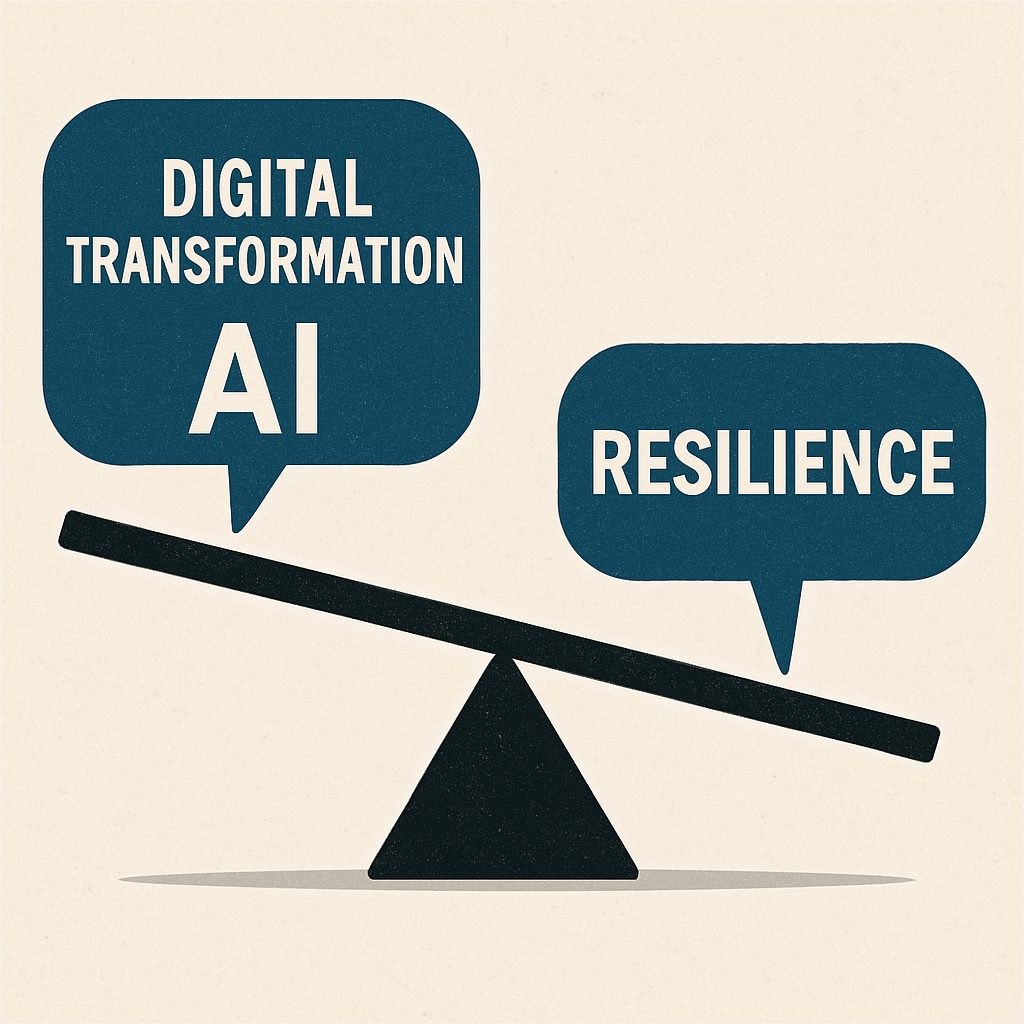5 min read
Quick Wins, Lasting Impact: Pragmatic AI For Insurance
It’s impossible to read any industry publication without finding an over-saturation of content about AI. Just as the early internet promised to take...
2 min read
.jpg) Nicholas Lamparelli
:
Sep 26, 2025 11:25:33 AM
Nicholas Lamparelli
:
Sep 26, 2025 11:25:33 AM

Inspired by "Investing in Your Company's Long-Term Viability" from Carrier Management
The insurance industry is experiencing an unprecedented technological evolution, with AI, cloud computing, and digital capabilities converging and reshaping how carriers operate. While the spotlight often shines on these flashy technological advances, there's a critical conversation we need to have about the less glamorous...but equally vital...aspects of organizational resilience.
A recent article by Carol Williams in Carrier Management (source) highlighted how carriers are racing to implement AI and digital transformations, with over 70% of executives either planning or already using AI across various functions. However, this technological gold rush may be creating dangerous blind spots in other crucial areas of operations.
While carriers pour resources into digital transformation initiatives, many are inadvertently neglecting foundational elements that could ultimately undermine their technological investments. Think of it like building a high-tech smart home on a crumbling foundation...the sophisticated systems won't matter if the basic structure isn't sound.
Here's what's particularly concerning: as companies focus intensely on customer-facing technological improvements, internal systems and processes are often left to languish. This creates what I call the "modernization paradox", where an organization can appear cutting-edge to customers while operating on outdated internal frameworks.
Several key operational areas require immediate attention:
Documentation Governance: Many carriers are operating with employee handbooks and corporate policies that haven't received comprehensive updates in years. This isn't just about housekeeping...it's about risk management and operational efficiency.
Physical Data Security: While cybersecurity gets significant attention, physical data protection often goes overlooked. The reality is that sensitive information still exists in paper form and on visible screens in public spaces, creating vulnerability points that no firewall can protect.
Human Capital Investment: The most sophisticated AI systems are only as effective as the people operating them. Without proper upskilling initiatives, technological investments may never reach their full potential.
Perhaps most concerning is the tendency for carriers to adopt a "wait and see" approach during periods of uncertainty. This strategic paralysis, while understandable, creates a dangerous competitive vulnerability. As the article astutely points out, companies that maintain momentum during uncertain times build significant advantages that become increasingly difficult for competitors to overcome.
The path forward requires a more holistic view of organizational resilience. While continuing to invest in necessary technological advances, carriers must:
The insurance industry's future winners won't just be those with the most advanced technology, they'll be the ones who successfully balance technological innovation with strong operational fundamentals. As the industry continues its digital transformation journey, the most resilient carriers will be those who remember that true viability requires investment across all organizational dimensions, not just the most visible ones.
The message is clear: in the race to digitize, don't forget to fortify your foundation. The long-term viability of your organization depends on it.

5 min read
It’s impossible to read any industry publication without finding an over-saturation of content about AI. Just as the early internet promised to take...

3 min read
Key Takeaways from CAHR 2024: Wellness, Hiring Practices, and the Impact of AI by Justin Bose I was fortunate to attend this year’s...

2 min read
Making Commercial Trucking Safer With AI – A Risk & Robots Podcast Interview with Stefan Heck, CEO of Nauto by Nicholas Lamparelli Outward...